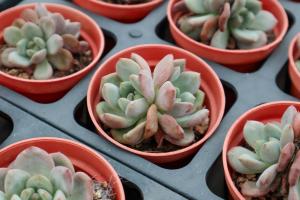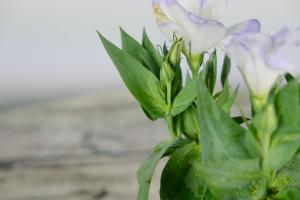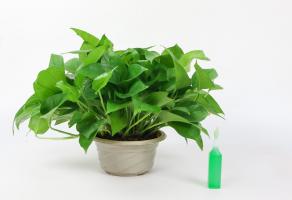Can You Have Small Holes in a Potted Plant?
Potted plants are a great way to add greenery to your home or office. Whether you're a gardening enthusiast or just looking to add some natural beauty to your space, potted plants can be a great addition. But when it comes to the health of your plants, there are many factors to consider. One question that often arises is whether or not you can have small holes in a potted plant.
The Answer
The answer is yes, you can have small holes in a potted plant. In fact, many plant experts recommend adding drainage holes to your potted plants to ensure that the roots have adequate water and oxygen. Without drainage holes, excess water can build up in the bottom of the pot, leading to root rot and other problems.
The Importance of Drainage Holes
Drainage holes are crucial to the health of your plant because they allow excess water to drain away from the roots. This helps to prevent the build-up of moisture in the pot, which can lead to problems like root rot and fungal growth. The holes also allow oxygen to enter the soil, which is essential for the health of the plant's roots. Without oxygen, the roots can become starved and begin to die off.
Choosing the Right Pot
When choosing a pot for your plant, it's important to select one with adequate drainage holes. While some pots come with pre-drilled holes, others may require you to add your own. If you're drilling your own holes, be sure to use a drill bit that's appropriate for the material of the pot. Ceramic pots, for example, may require a special drill bit to prevent cracking.
Maintaining Your Potted Plant
In addition to ensuring that your pot has adequate drainage holes, there are several other steps you can take to keep your potted plant healthy. One important factor is watering. Potted plants typically require more frequent watering than plants grown in soil, as the soil in pots can dry out more quickly. However, it's important to avoid overwatering, as this can lead to root rot.
Another important factor is soil quality. Use a high-quality potting mix that's specifically formulated for potted plants. A good potting mix will provide the right balance of nutrients, drainage, and aeration. You may also want to consider fertilizing your potted plant to ensure that it's getting the nutrients it needs.
In Conclusion
In summary, having small holes in your potted plant is essential for its health and wellbeing. Drainage holes allow excess water to drain away from the roots, which prevents problems like root rot and fungal growth. When choosing a pot for your plant, be sure to select one with adequate drainage holes, or add your own if necessary. Finally, be sure to maintain your potted plant by watering it properly and using a high-quality potting mix. With the right care, your potted plant will thrive and bring beauty to your home or office for years to come.

 how many times do yo...
how many times do yo... how many planted tre...
how many planted tre... how many pine trees ...
how many pine trees ... how many pecan trees...
how many pecan trees... how many plants comp...
how many plants comp... how many plants can ...
how many plants can ... how many plants and ...
how many plants and ... how many pepper plan...
how many pepper plan...





























